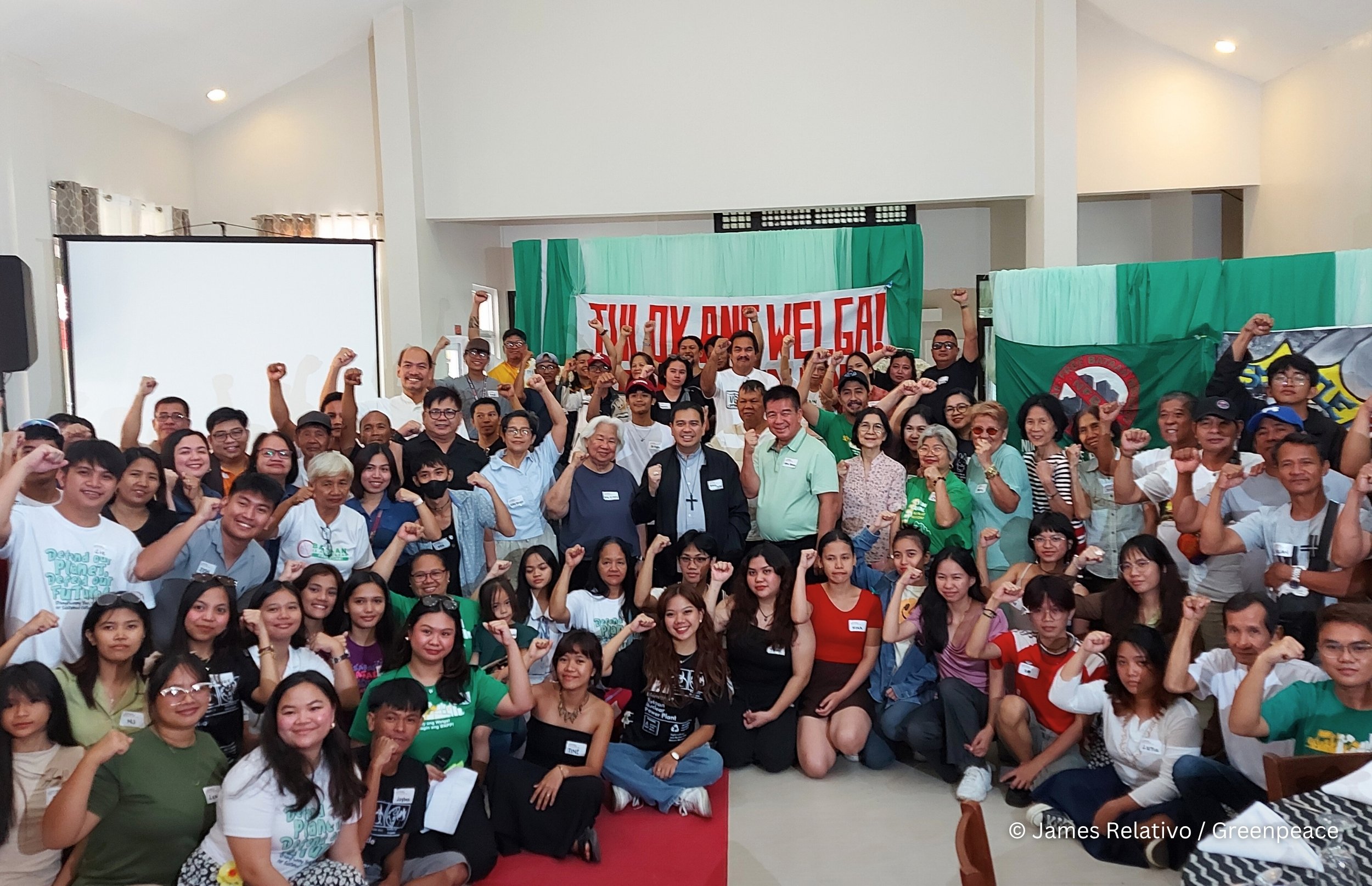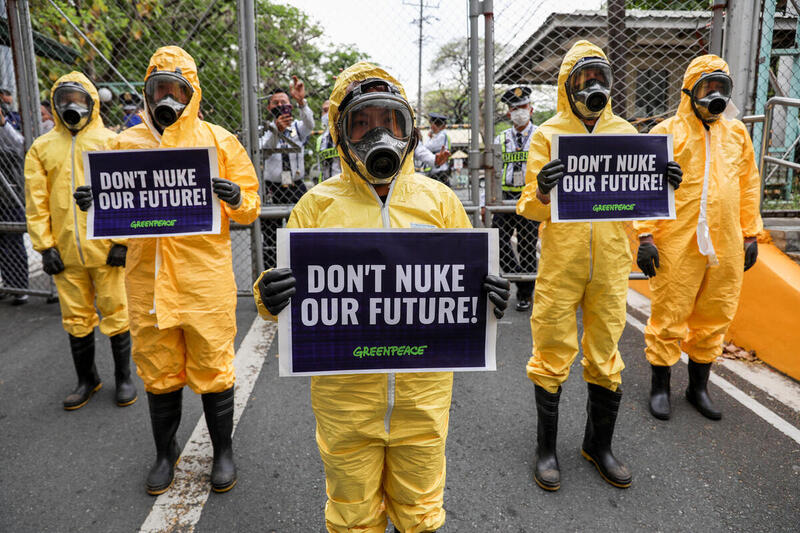QUEZON CITY, Philippines — Greenpeace called on the Marcos administration to deliver genuine progress on their promised climate and environmental policies, ahead of the President’s second State of the Nation Address on Monday. The call came after Greenpeace beamed climate justice demands of communities in a floodway along Brgy. Tumana, Marikina City on Saturday night. The group demanded that the government hold oil and gas companies responsible for their role in the worsening climate crisis by making them pay reparations to communities most affected by climate impacts.
© Noel Celis / Greenpeace
“The real state of the nation is that the billions of pesos spent in mitigating the worst effects of climate change and adapting to these new realities cannot catch up to the escalating impacts that Filipino communities experience right now. The responsibility for paying for climate impacts falls squarely on corporations who continue to deny their responsibility for the climate crisis,” said Greenpeace campaigner Jefferson Chua. “The President must turn his words on climate justice into action and show that his allegiance is not to big businesses that continue to profit from destruction, but to the Filipino people.”
The group pointed out that the landmark 2022 Climate Change and Human Rights (NICC) report by the Commission on Human Rights already found factual basis that fossil fuel companies are morally responsible for human rights harms to Filipinos brought on by climate impacts, and could be held liable for those damages.[1] A 2023 study published in OneEarth further estimated that the top oil and gas companies owe USD 70 trillion-worth of climate loss and damage to those most disproportionately affected by climate impacts.[2]
In Barangay Tumana–known to be susceptible to climate impacts–community leaders have expressed their worries over how their local mitigation and adaptation efforts would hold up against more extreme weather events. They believe that reparations for loss and damage from multinational companies most responsible for climate change is needed to help communities like theirs respond more adequately to the crisis.
“Kami ay nananawagan [kay Pangulong Marcos] na gumawa ng mga batas para pagbayarin ang mga private corporations na nagco-contribute sa pag-init ng mundo, na siyang dahílan din ng pagbabago ng klima, at nagdudulot ng malalakas na bagyo na nagiging sanhi ng pagbaha,” said Tumana Brgy. Councilor Jimmy Ceguerra. “Hindi maiiwasan na nasasalanta ng kasalukuyang climate change ang mga nasa low-lying areas, na nagkataon ay mga tao rin na nasa laylayan. Sila ‘yung dapat na nabibigyan ng tulong [na mula sa] reparation pay ng mga multinationals.”[3]
Greenpeace also reiterated that we can only achieve genuine climate justice if the government weans off its dependence on fossil fuels and aims for more urgency and ambition towards a just transition to 100 percent renewable energy.
This also entails that the government strike out unnecessary detours from this transition, such as dangerous and costly nuclear energy, as well as natural gas, which is also a fossil fuel.
The Marcos administration has the privilege of having wide-scale support in both Houses. Greenpeace is calling on President Marcos Jr. to be true to his promises: he should advance policies that are rooted in climate justice, and ensure that they are enacted as soon as possible.
“Filipinos have been footing the bill for the fossil fuel industry’s destructive businesses for far too long, while these corporations continue to earn billions of dollars from destroying the climate and the planet,” Chua said. “We hope that President Marcos Jr. uses his SONA as a platform not merely for words, but to deliver a strong message against climate polluters, and make them pay for the consequences of their unchecked greed.”
Notes
[1]National Inquiry on Climate Change (NICC) Report
[Backup Copy of the NICC Report]
[3]Quote Translation: “We are calling on President Marcos to come up with laws that will make private corporations pay for their contributions towards global warming, which is also the reason for climate change, which in turn leads to devastating storms that cause flooding. It is inevitable that the current climate change will affect those in low-lying areas, wherein, incidentally, the people in the margins also reside. They are the ones who should be given help from reparation payments from multinational corporations.”
PLEASE USE PHOTO CREDIT: Noel Celis / Greenpeace
Media Contact
Maverick Flores
Communications Campaigner
Greenpeace Philippines
[email protected] | +639176211552

![[Blog] WHEN THE TIDE BECOMES THE TEACHER](https://www.greenpeace.org/static/planet4-philippines-stateless/2025/06/95c8411e-9a04f785-4293-46a6-a6cf-425f0a384682.jpg)

